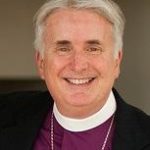 Time got away from the House of Bishops on Thursday, but the legislative body still teamed with the House of Deputies to get things done at the 79th General Convention of The Episcopal Church in Austin, Texas.
Time got away from the House of Bishops on Thursday, but the legislative body still teamed with the House of Deputies to get things done at the 79th General Convention of The Episcopal Church in Austin, Texas.
Addressing long-raging controversy around amending supplemental text to be used in liturgy, the House of Bishops was forced into stoppage to debate over minutiae of Resolution D078, which calls for the authorization of “Holy Eucharist, Rite II (Expansive Language) for Trial Use.” In the end, both the House of Bishops and House of Deputies approved the resolution that permits Episcopal congregations to use optional expansive-language versions of Prayer A, Prayer B, and Prayer D in the 1979 Book of Common Prayer.
D078 is the latest resolution to spark fierce debate at the convention, following the passage of Resolution A068 that calls for a memorialization of the 1979 Book of Common Prayer as a Prayer Book in the Episcopal Church, as well as liturgical renovation.
“I want to make sure that I’m being clear … that it is supplemental text, not the Prayer Book,” said Bishop Greg Brewer in a video feed from Austin, Texas. “The Prayer Book is remaining intact. But there are a lot of supplemental text … renovations for Eucharist Prayer B and other things that are going on that would be pulled out (but) kept in the Prayer Book, but a different version would be put in for supplemental use, subject to the approval of the Diocesan bishop.”
Also generating discussion and controversy – albeit in the House of Deputies – was the creation of new Lesser Feasts and Fasts 2018 per Resolution A065. The resolution calls for the collection and combining of texts from the Great Cloud of Witnesses 2015; Holy Women, Holy Men and Lesser Feasts and Fasts 2006 into an integrated Lesser Feasts and Fasts 2018.
The resolution, however, leaves uncertainty about which commemorated people will be kept, and which will be removed in the Lesser Feasts and Fasts 2018.
“It was passed, but none of us have a clear picture of actually who was or was not included,” Bishop Brewer said. “Just gratitude that somehow we’d be operating on a single book together, so it remains to be seen all of what is contained in terms of what passed, especially with amendments.”
The passage of the triennial budget (2019-2021) also generated a lot of debate about inclusion of remuneration for the president of the House of Deputies, the Rev. Gay Clark Jennings, who was elected for a third and final three-year term at this year’s convention. The House of Deputies president previously received no compensation, but the responsibilities of the position have far surpassed its original scope as written in the Canons.
“That has always been a controversial move because the argument has been we should be paying the president a regular salary in the same way that we pay the Presiding Bishop,” Bishop Brewer said. “After all, she travels quite a lot, she has a lot that she has a lot to do for the position. She has her own chancellor, she has people she consults. But the fact of the matter is that position has expanded way beyond its original intent.
“If you look at the Canons, it’s actually a very, very limited position,” Bishop Brewer said. “So, either you have to say that the position is expanded and that’s been a mistake and therefore we need to go back to a more limited view or (go with) what is happening now is, in fact, appropriate for the present place that the Episcopal Church is in and the president should be compensated, accordingly.”
Bishop Brewer said remuneration for the House of Deputies president has its supporters and detractors. “But at this point, the budget was passed where the inclusion of a renumeration that is appropriate for a very active president of the House of Deputies,” he said. “This concern does not seem to want to go away, particularly when this position salaried as it is (is) coupled with a new phrase which has to do with not the president of the House of Deputies and the Presiding Bishop, but with quote, unquote, “Our presiding officers,” in essence putting the president of the House of Deputies and the Presiding Bishop on par with each other. That’s something that is quite different because we are an Episcopal-based church.”
On the lighter side of things, Bishop Brewer said one of the most poignant things that happened Thursday was not on the convention schedule: “The House of Bishops, in the midst of some time that they had on their hands, decided to have a closed session where we just talked to each other and prayed with each other. It was profoundly intimate, supportive, tender, and people shared deeply from the heart.
“One of the things that really makes House of Bishops quite different than the House of Deputies is … we are smaller. We meet more often, and we have that kind of relationship with each other. Quite honestly, it’s hard not to feel that you’re part of something important when you have those kinds of gatherings for prayer and for mutual, personal support.”
Bishop Brewer thanked everyone for their prayers as the convention winds down to its final day. “We have felt it and we need it,” he said. “Bless you.”
